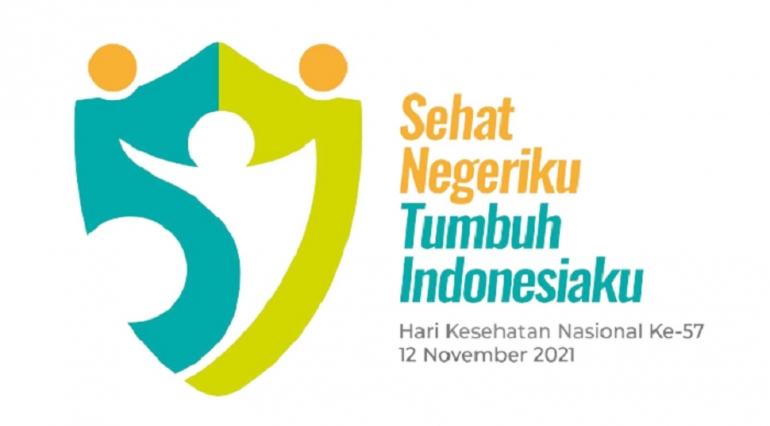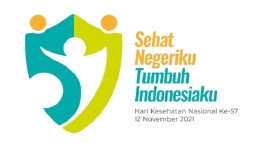Today, 12 November 2021, for the umpteenth time we commemorate the National Health Day (HKN) in Indonesia, a very special day for healthcare workers. It is special because this is the day, the right moment to be grateful, reflect, and introspect on their duties, roles and responsibilities as individuals, members of society, the nation and state.
This day is the celebrated event nationally, as a sign that healthcare workers (Nakes) have a very important role in the development of this country.
Healthcare workers in Indonesia, as well as in the world, in the midst of the problems they face-like other professions, it turns out that they are very benefited (Read: Privileges). Their position, reputation, future, treatment of the Government, education and employment opportunities for the human resources (HR) are very different from other professions, even better than most of them.
It is no exaggeration to say that our healthcare profession should be grateful for this blessing.
Through HKN, I was moved to write down the four major privileges of HR Healthcare as a form of self-reflection, in order to improve health services in Indonesia.
Maybe what I'm saying is subjective. At least this is what I have observed, experienced and my fellow professional friends feel as part of health human resources in Indonesia.
First, in terms of education. There is no education for healthcare personnel that exceeds the education of other professions. Its position is number one far above other study programs. According to the 2019 Ministry of Education and Culture Statistics, the number of Pharmacy, Midwifery, Nursing study programs is 1,571. While the management study program, the second highest was only 1,140, followed by Accounting 991 and Islamic Religious Education 670 units. This means that the number of healthcare educational institutions is more than 26% of the total study programs in Indonesia. The number is of course very big.
The highest healthcare education according to the Ministry of Education and Culture in 2020 is 790 midwifery study programs followed by nursing as many as 551. This proves that the need for health graduates is very much needed in this country, especially midwives, nurses and pharmacists.
Second, privilege in terms of job opportunities. The community's need for healthcare workers will never run out. From land, sea and air. Especially during this Covid-19 pandemic, soaring sharply.
According to the Regulation of the Minister of Justice and Human Rights, BPPSDM, the ratio used for doctors and the ideal population is 1:2500, the target in 2025 is 1:40. For the profession of midwifery 1: 1000, the target is 1:30. While the ratio of nurses and population is 1: 500, the target is 1: 200 in 2025. Thus, there are still many job opportunities for the healthcare workers.
Not to mention the thousands of job opportunities abroad. Nurses, for example, are the only Indonesian healthcare professions that benefit greatly from this golden opportunity. Countries such as Germany, the Netherlands, Japan, Kuwait, Qatar, UAE, Saudi Arabia, are never empty of demand for Indonesian nurses. Every year there are always even we are not able to meet their demands.
Third, scholarship or continuing education domestic and abroad paid by the Government or overseas agencies. Opportunities for scholarship both domestically and abroad for Indonesian Health Human Resources have never subsided. Every year they are available. The opportunity is periodically announced and is widely open for the healthcare workers ranging from those who have a Diploma III educational background to continue to Diploma IV or S1, to Masters who want to continue to S3.
For example, in 2020, the Circular Letter from BPPSDM Number 02.03/V/2543/2019, regarding the Provisions for the Implementation of Admission of Candidates for Domestic Study Task Participants for Health Human Resources in 2020. Likewise, opportunities for studying abroad assignments. The other goal is to improve the quality of Health Human Resources as well as to improve the quality of our health services.
The opportunity for this learning task is not widely owned by other professions outside of health. Even if there are numbers and opportunities, they are not as massive as health human resources. This is a concrete form of the Government's enormous attention given to health workers that they, if I may say, have priority in their professional development.
The fourth privilege is about the facilities. Human Resources for Healthcare workers, whether under the auspices of civil servants or private companies, they often get facilities that are not provided even to teachers who are desperately needed. Although not all of them get the same treatment. Healthcare workers at the Puskesmas, especially in remote areas, they often receive housing facilities, although perhaps not all of them are like what happened in the Papua insland.
Likewise healthcare workers who work in the private sector in mining or industry. They generally receive those facilities, including free meals, and other benefits are no exception. Indeed, I cannot say that everyone could enjoy this privilege. But at least this is the real form of privilege that our health workers get.
I experienced it and am very grateful as a nurse who works in a company owned by foreign investors. What I got was not experienced by many of my colleagues, let alone those at the provincial level in Aceh, for the national size alone in our company there are only 17 people.
Finally, we must admit, there is still a lot that needs to be addressed in the management of healthcare human resources in Indonesia. For example, there are friends who have not received the Registration Certificate as they expected, the competency test system must be more efficient, the training is not organized for health workers in remote areas, the wages are inadequate, the division of basic tasks is not appropriate, violence/trauma physical and psychological experiences experienced at work, to the less than optimal management of health services felt by the community. All of this requires our collective attention and efforts to resolve.
At last, but not least, we hope that this HKN moment will be the best time for reflection, that as part of the elements of nation and state development, Indonesian Health Human Resources are committed to upholding the interests of the community, nation and state, as well as the professional code of ethics. Hopefully.
From Makassar, we wish you a Happy National Health Day.
Makassar, 12 November 2021
Ridha Afzal
*This article is an English version of the original one titled 'Hari Kesehatan Nasional: Privilage SDM Kesehatan'. Published in Kompasiana on 12 November 2021.
Baca konten-konten menarik Kompasiana langsung dari smartphone kamu. Follow channel WhatsApp Kompasiana sekarang di sini: https://whatsapp.com/channel/0029VaYjYaL4Spk7WflFYJ2H







